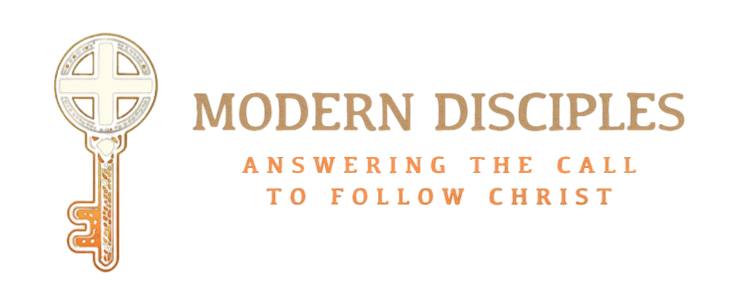
Bible Study
How to Study & Understand God's Word
Here's the uncomfortable truth: most Christians don't know how to study the Bible. They show up to small groups, read a passage, and immediately jump to "What does this mean to me?" without ever asking "What did this mean to the people it was written to?" The result? Bad theology, twisted Scripture, and Christians who think they're being spiritual when they're actually being sloppy.
The problem runs deeper than you think. Walk into any Bible study and you'll hear people say "Scripture interprets Scripture" or "Iron sharpens iron" — but they're using these phrases completely out of context. They don't understand hermeneutics (the science of biblical interpretation), so they end up practicing eisegesis (reading their ideas into the text) instead of exegesis (drawing the author's meaning out of the text)
Most Christians practice eisegesis and don't even realize it. They read the Bible through the lens of their own culture, their own problems, their own preferences. They find "gold nuggets" of personal application and think that's the main point. But here's what they're missing: while God's Word is timeless and speaks to every generation, every passage had a specific audience and a specific meaning that the original author intended.
Proper Bible study starts with understanding what the text meant to its original audience, then carefully applying those truths to our lives today. This isn't just academic exercise — it's essential for faithful discipleship. When we skip hermeneutics and jump straight to application, we risk twisting God's Word to say what we want it to say instead of what God actually said.
The stakes are real. Bad Bible study leads to bad theology. Bad theology leads people away from truth. And when Christians can't handle Scripture accurately, we lose credibility with a watching world that already thinks we're intellectually weak.
That's why we're here — to learn how to study God's Word the way it was meant to be studied.
History's Warning About Bad Bible Study
Martin Luther never intended to start the Lutheran church or launch the Protestant Reformation. This lawyer-turned-monk-turned-priest just wanted the Roman Catholic Church to hold another formal council meeting to discuss some serious problems he'd discovered.
After visiting Rome, Luther was disgusted. The priests didn't know Scripture well enough to teach it properly, and the Pope was actively misusing God's Word for political and financial gain. So Luther started writing pamphlets — essentially topical Bible studies in German, the native language of his people. He wanted ordinary Christians to read Scripture for themselves and discover what it actually said.
Here's why this matters for you today: Luther's reforms gave us the privilege of private interpretation, but most Christians today don't understand the responsibility that comes with it. We can study Scripture like the Bereans to confirm whether what we've learned is true, but we don't have the right to make up our own theology by misunderstanding or pulling verses out of context to bend God's Word to our liking.
And yes, this absolutely happens.
The Darby Disaster
Want proof? For 1,800 years, the church practiced baptism only. Then John Nelson Darby came along in the 1800s and convinced people otherwise. Darby pulled Scripture out of context, elevated implied text over explicit text — which is terrible hermeneutics — and invented or modernized the Pre-Tribulation Dispensational view.
He convinced C.I. Scofield, who was writing a study Bible at the time. The Scofield Reference Bible became incredibly popular and was adopted by Dallas Theological Seminary. Today, Dispensationalism is the only eschatological view they endorse, and now a lot of American Christians follow this recent invention instead of 1,800 years of church history. - I'd have more respect for DTS if they presented all the views and said this is what we suspect is most accurate.
Sharp Edge: You/we are often arrogant Americans. We all too often view the world through the lens of our own society and culture. You are not the original audience for the biblical authors. Again, God's Word is timeless, but let's not throw away our hermeneutics studies and think like Tim LaHaye! He wrote the Left Behind books and made comments about Revelation 2-3, claiming we live in a "church age." That's heresy, folks. There's zero evidence to suggest those seven letters were lip service to the original audience but powerful and specific for us today. None whatsoever!
Darby should have looked at John 17:15 and realized that passage is explicit — we shouldn't elevate implied text over what's clearly stated. Doing so leads to bad interpretation and misleads millions of people.
We have the right to confirm facts through private study. We don't have the right to theorize what's convenient for us. We have the responsibility to get this right, or we become the ones misleading others.
This is why proper Bible study matters so much — and why we're different from 70% of Christians today. - Please help me change this. I don’t care if you agree with me or not, but help me lower the average number of folks who misunderstand the Bible. Then, we can have a meaningful discussion about what you believe later.
Why Original Audience Matters
Here's where most Christians go wrong: they open their Bibles, read a passage, and immediately ask "What is God saying to me today?" But that's starting at the wrong place. Before you can properly apply Scripture to your life, you need to understand what it meant to the people it was originally written to.
God's Word is absolutely timeless — it speaks to every generation and you'll discover gold nuggets of truth every time you read it. Something new seems to pop up and speak directly to your situation. But here's the critical part: don't close your Bible, call it a day, and think God's been giving you personal messages. That's misleading at best.
Yes, there are plenty of messages woven into Scripture that make it relevant today. God made sure His Word would speak to all generations. But there was a specific audience, and the main point of any passage meant something specific to that audience. This is where we need to start our investigation, not conclude it.
Don't throw away those personal nuggets — they're super valuable and often show how God's truth applies across time. But the main point of the passage is likely even more valuable, and it's our job to search for it first.
This is when we properly let Scripture interpret Scripture. We don't elevate implied text over explicit text. We search to find out who the actual audience was, understand their historical context, and then let the original author's words speak clearly.
Example: When Paul writes to the Corinthians about head coverings in 1 Corinthians 11, you can't just jump to modern application without understanding the cultural context of first-century Corinth. What was happening in their society? What specific problem was Paul addressing? Once you understand that, then you can carefully consider how the underlying principles might apply today.
The Hermeneutics Foundation
This is why understanding hermeneutics — the science of biblical interpretation — isn't optional for serious Bible study. It's the foundation that keeps you from reading your own ideas into the text instead of drawing God's intended meaning out of it.
Most Christians practice eisegesis (reading into the text) when they think they're doing exegesis (drawing from the text). They see a verse that seems to support what they already believe and run with it, never stopping to ask what the original author actually meant.
We talk more about the difference between exegesis and eisegesis in our specific article on that topic — it's cornerstone content that every Christian should understand. But the point here is simple: if you don't start with proper hermeneutics, you'll end up twisting Scripture to say what you want it to say instead of hearing what God actually said.
That's dangerous territory for any believer.
Choosing the Right Method for the Passage
Three practical approaches will cover most study needs — but here's the key: pick the method that fits the passage, not just your preference. Close reading, deep exposition, or topic-focused exploration each serve different purposes.
Most Bible study leaders don't know the difference, but they'll volunteer to lead anyway.
Inductive Bible Study
How-to in brief: Observe the text carefully, interpret its meaning, then apply it. This lets the passage speak for itself without assumptions.
Observation — What does the passage say? Note keywords, repetitions, and context (try Philippians 4:6–7).
Interpretation — Ask about author, audience, and genre to uncover intent.
Application — What one step will you take this week because of this text?
Try this (10 minutes): Read Philippians 4:6–7, note one command and one promise, then write one practical response.
When Inductive Works Best: Luke 15 is a perfect example. Jesus told three parables back-to-back in one sitting to address the Pharisees grumbling about His dinner companions. The Lost Sheep (1 in 100), Lost Coin (1 in 10), and Prodigal Son (1 in 3) all build to one main point: the older brother represents the grumbling Pharisees. Taking weeks to go line-by-line often misses this central message.
Expository Bible Study
This is book- or passage-level study — verse-by-verse, paying attention to context and flow. It's ideal for sermon prep or deep studies of a book.
Focus on context — Where does this passage fit in the book's argument (example: Romans)?
Verse analysis — Break key verses into phrases and note theological implications (see Romans 8:28–30).
Application — How does the author's point shape the church or your life today?
Try this (20–30 minutes): Take one short chapter from a New Testament book and outline its main idea and three supporting points.
When Expository Works: Perfect for working through Romans systematically or studying how Paul builds his argument in Ephesians. But don't force it on passages that were meant to be understood as complete units.
Topical Bible Study
When you want to know what Scripture says about a subject (faith, prayer, forgiveness), gather passages across books and synthesize their message.
Choose a topic — e.g., "faith."
Gather texts — use a concordance or study Bible to find Hebrews 11, Ephesians 2, James 2, or Romans 10:17, for example.
Synthesize — Compare how different books present the topic and note practical takeaways.
Try this (15 minutes): List three passages on your topic, note one common theme, and one way to live that out this week.
The Method Matters
Here's what most Bible study leaders miss: Jesus explained Luke 15 in one sitting, not over weeks. When you use expository methods on inductive passages, you often stop mid-sentence, point at someone, and say "You're the prodigal son!" and we should all rejoice.
Maybe that's a valuable gold nugget for personal application. But you're not the original audience, and that wasn't the main point. The Pharisees were grumbling about Jesus eating with sinners — and Jesus used three parables to show them they were acting like the older brother who resented his father's grace.
Match your method to the passage's structure, and you'll discover what the author actually intended.
We don't sidestep hard topics here. We face them head-on. So start by exploring our category pages - they're practical built to help you think more biblically. You should find them very informative and useful. If you agree, then feel free to drill down into the articles within each category. Take your time. If you do, you'll learn a lot and be better equipped to live more like Christ.
1) Biblical Hermeneutics: How to Study and Interpret the Bible
Learn why hermeneutics is foundational for reading Scripture accurately. Walk through context, genre, and authorial intent so you hear the author’s intended meaning rather than importing your own.
2) Exegesis vs. Eisegesis: Understanding the Difference
Exegesis draws meaning out of the text; eisegesis reads personal ideas into it. See concrete examples, how each shapes doctrine and practice, and how to cultivate exegetical habits.
3) Bible Reading Plans: A Guide to Consistent Bible Study
Consistency beats intensity. Compare chronological, thematic, and one-year plans; get practical tips for picking a plan you’ll actually finish and for getting back on track when you miss days.
4) Parables of Jesus: Understanding Christ's Teaching Stories
Discover the deeper meaning behind Jesus' parables and how they reveal kingdom truths. Learn practical methods for interpreting these stories and applying their timeless lessons to modern life.
5) How Did the Apostles Die: The Martyrdom of the Twelve
Explore the historical accounts of how the apostles died for their faith. Understand what their martyrdom reveals about the early church and the cost of following Christ.
Start Where You Are
Learning proper Bible study is a lifelong journey, but it starts with simple, concrete steps you can take this week. You don't need a seminary degree — just a willingness to slow down, ask better questions, and let Scripture speak for itself.
Three Immediate Actions:
Master hermeneutics first. Before you dive into your next study, read our Biblical Hermeneutics article. Understanding how to interpret Scripture properly will transform every passage you read. This isn't optional — it's foundational.
Pick one method and practice it. Choose inductive, expository, or topical study based on your current passage. Start with something short like Philippians 4:6-7 and work through the observation, interpretation, application process slowly.
Ask the original audience question. Before you apply any passage to your life, ask: "What did this mean to the people it was written to?" Then carefully bridge from their context to yours.
The church needs Christians who can handle God's Word accurately. Start today

Chris Daniel, just a servant of Christ calling others to be ready. Like the Bereans, I try to examine Scripture daily to see if what I hear is true. If you're struggling to live as we're called, you're still in the fight. Don't give up.
Category 2 - Christian Apologetics

Category 3 - Bible Study

Category 4 - Theology

Theology Proper (coming soon)
Biblical Theology (coming soon)
Christology (coming soon)
The Attributes of God (coming soon)
The Names of God (coming soon)

"Most middle-class Americans tend to worship their work, work at their play, and play at their worship. As a result, their meanings and values are distorted. Their relationships disintegrate faster than they can keep them in repair. Their lifestyles resembles a cast of characters in search of a plot." - Gordon Dahl
"The Bible is a reliable collection of historical documents written down by eyewitnesses during the lifetime of other eyewitnesses that report supernatural events that took place in fulfillment of specific prophecies and claimed their writings were divine rather than human in origin."
- Dr. Voddie Baucham on 2 Peter 1





